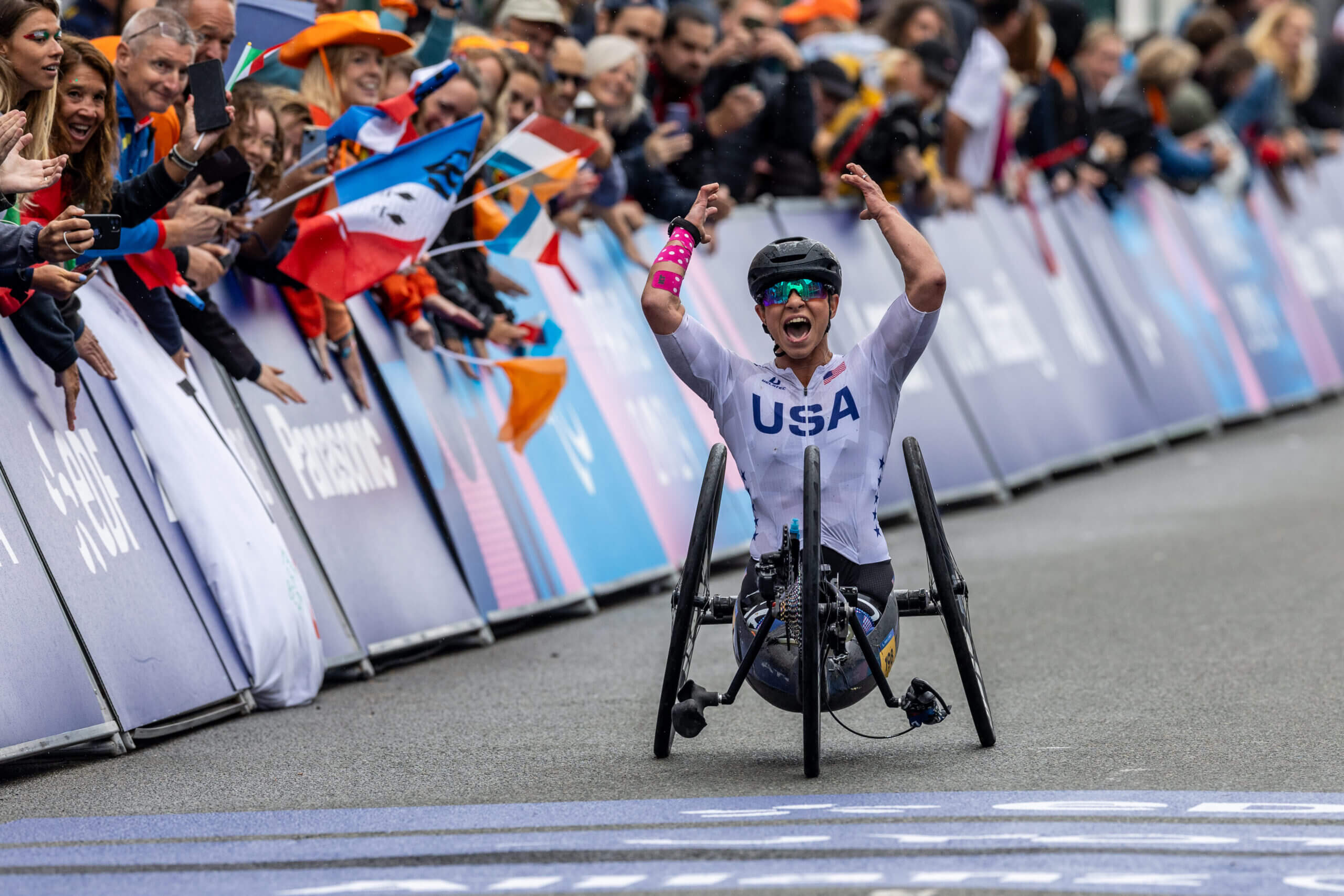Oksana Masters beamed as she rode through the mixed zone, stopping to talk to the media, her infectiously vivacious personality oozing out. She had just claimed her second Paralympic gold in two days, finishing the women’s H5 road race in one hour 52 minutes and 14 seconds.
“I feel like I’m on cloud nine,” Masters said. “I feel dizzy. I have to pee! I’m so excited, all the emotions right now.”
As she rode away, however, the 35-year-old stopped her bike and hugged her adoptive mother, the woman who saved her life. Gay Masters, an American college professor fought for two years to get Oksana out of the Ukrainian orphanage system.
Neglected at birth after being born with conditions caused by radiation poisoning from the Chernobyl nuclear disaster, Oksana spent seven and a half years in orphanages where she was abused and raped by men. In her raw account, The Hard Part Out Loud, she said she associated sleep with abuse.
When she moved to America with Gay, however, she was loved and, as the rain eased in Paris on Thursday, mother and daughter held each other in a tight embrace and sobbed hard. They had done it. For the second consecutive Paralympic Games, Oksana had won gold in both the H5 road time trial and road race — a classification for hand-cyclists who have movement affected to a low degree or the absence of limbs and use a kneeling position.
“This medal means the world to me,” said Oksana. “There’s no way I can put it into words. My team believed in me (but) I just doubted myself. I did not think it was possible. The minute the time went, I just went into survival mode.”

Masters won gold in the women’s H5 road race (Michael Steele/Getty Images)
Sporting a white lycra top with the letters USA across the front, her blonde plait hanging down her neck, Oksana had led the peloton and toiled for 56km (35 miles) in tricky, slippery conditions.
At the start of the race she had proposed to 2023 world champion Chantal Haenen that they work together but the Dutch rider crashed out on the second 14km lap.
“My heart broke for her,” said Oksana afterwards.
At one point in the race, she gestured to riders behind her to come forward to help share the load.
“I tried to see where everybody was on the climb, and nobody was responding,” Oksana said. “I knew that they were strong enough. They were just letting me go, because I know they know I’m a strong climber.
“I didn’t want to just keep attacking, attacking, attacking and wearing myself out, because I wanted to have enough for the last climb. I tried to say (to them) ‘Let’s work together a little bit’.”
Oksana has, in her words, “a love-hate relationship” with road racing. “I love it but it (also) gives me the most anxiety because there’s so much you cannot control. You don’t necessarily execute the plan that you raised in your mind the night before. You just have to stay relaxed and calm and respond to the situation.”
Ana Maria Vitelaru of Italy, who took bronze and dedicated her achievement to her late younger brother who died in April, said she deeply respected Oskana’s “innate strength”.
“I am happy for her victories because she deserves it, she has suffered so much in life.”

Oksana leads the road race (Michael Steele/Getty Images)
Oksana now has 19 Paralympic medals across the winter and summer Games, nine of them gold. She stores them in socks — “Of course, the girl with no legs loves socks!” she laughed — to keep them safe, especially since she broke her first medal.
But Oksana is not really a “medal person”. Instead she says it’s the memory of the race that means the most to her. “Looking at my mum and my team, that’s the medal for me.”
This Paralympics will hold particular resonance for Oksana. She is donating, via Global Giving, her medal prize money towards No Child Forgotten, a non-profit organisation for kids and orphanages with disabilities, specifically in Ukraine.
“I was one of those kids,” she said. “Right now in the time of all the conflict around the world, they are the ones heavily affected. To be able to race for them and have that ‘why’ carried me through that finish line on that last climb.”
(Top photo: Mauro Ujetto/NurPhoto via Getty Images)

